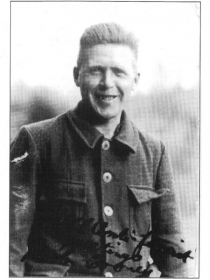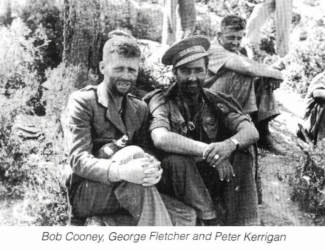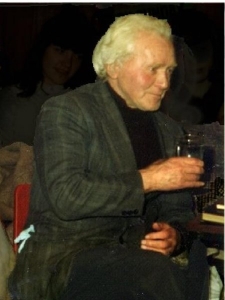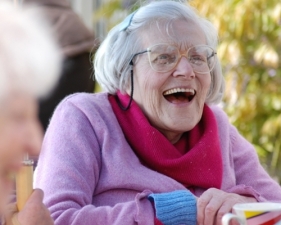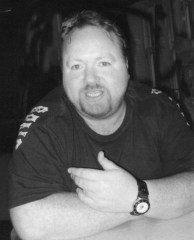Voice’s Old Susannah comments on current events and enlightens us with definitions of some tricky terms with a locally topical taste. This week, more ABZ ‘A to Z’, some ATOS, and thoughts on the sad loss of a Voice colleague. By Suzanne Kelly.
Tally Ho! It’s all been happening up and down the country, and whatever you think of the Jubilee, isn’t it grand that our ConDems have got the unemployed something to do. Not only have they apparently been given important (albeit temporary) jobs as stewards at Jubilee events, but our government employment arm has combined this great work experience with a holiday.
Lucky invitees from the ranks of the unemployed enjoyed several days in London, camping under the stars (and a tiny bit of rain) to help run Jubilee events. I have nothing against the Jubilee itself, and it is great to see people getting back to work.
Soon some of our lazier unemployed, including MS and cancer patients, will be given suitable jobs too; all thanks to our Coalition and ATOS, the kind (foreign) organisation which assess who’s fit for work and who’s not (and gives work to absolutely all of these people anyway).
While the layabouts got to layabout in lovely tents in London, it’s come to our attention that Conservative co-chairperson MP Lady Warsi was roughing it as well. While this frugal woman would apparently stay in cheap B&Bs or kipped on a friend’s sofa (as befits someone of her office), she’d put in expense claims for the maximum amount allowable, and seems to have travelled to Pakistan with a relative/business partner in tow. Result!
Nothing wrong with having a bit of an earner now and then, as long as you’re not unemployed. Voice readers might like to know Warsi’s never won an election. Interestingly she was a ‘community cohesion’ guru of sorts (I’ll have to define ‘community cohesion’ sometime), despite some allegations that her election material was homophobic. It is a funny old world indeed, and we are extremely generous taxpayers.
Old Susannah was up in the lovely town of Helmsdale for a long weekend.
This pretty coastal town is missing several tricks however. There are no concrete high-rise buildings, no development plans, and not even a ring road. There are several grassy areas with no granite webs planned, and the seashore doesn’t have any bingo halls, amusement arcades or huge factories. And somehow, without so much as a single shopping mall, the people were friendly, cheerful and happy.
I met a lovely man nicknamed ‘Klondike Davy’ who took me panning for gold. I say he is nice, but one or two people in the town have ridiculed him in the past apparently. You see, he’s given prizes for the region’s highland games in the form of the valuable gold and garnet gemstones he’s found while panning.
The criticism from a minority, quite rightly, is that he’s given valuables and his time and efforts away for nothing. People like that, or who give money to charities, run parties in Victorian Gardens and so on just aren’t stimulating the economy and are obviously mugs.
Apparently some of the lovely schools are in the wrong place, even after all the 3Rs strategic planning and expensive consultants
We don’t need great acts of generosity, children having fun, family days in parks with music – we need to encourage businesses to come to Scotland. This can only be done by getting scroungers to work and by building granite webs. Perhaps in 20 years’ time people will still remember having a great day out or winning a unique, valuable gift of gold.
Or perhaps in 20 years’ time people will still remember people being generous to a fault. I know which I think is more likely.
Before we continue with our romp through ACC’s A to Z of its spectrum of services, spare a thought for our school children. Apparently some of the lovely schools are in the wrong place, even after all the 3Rs strategic planning and expensive consultants. I think we should close them all down and build new ones.
But if the children aren’t busy worrying about the unending cycle of exams they are expected to take, like so many dogs jumping through flaming hoops, another worry looms. No, not lingering asbestos in Walker Road School, now completely clear of contaminants (I’m sure). I can reveal that Aberdeen Football Club plan to give schools more unsold/unsellable tickets for the home games.
In this heart-breaking development, inconsolable youngsters were given the news they’ll be expected to pack the empty seats. One young person, close to tears, told Old Susannah
“It’s bad enough to know that AFC is our team and that soon we’ll build an even more empty stadium near Loirston Loch, but to actually have to sit through a match will be torture. Not to mention the cost of a coke and burger.”
Reports that child welfare agencies may step in are as yet unconfirmed. A further rumour suggests unemployed might be forced to attend games – but those surveyed so far have expressed a preference for sleeping in tents in the rain along the Thames.
Finally, Willows Animal Sanctuary needs help (the government only has funds for consultants), and it was such a pleasure to see a big help arriving in the form of Paul Rodgers and wife Cynthia.
(See article – ‘Willows Name New Patrons Paul Rodgers And Cynthia Kereluc’ in this weeks issue. )
The last time Old Susannah had seen Mr Rodgers (or ‘Paul’ as he said I should call him) was in the late 1980s, backstage at a concert for the Firm (if you don’t know – you should – Tony Franklin, Chris Slade, Jimmy Page and Paul Rodgers). John Bonham’s son Jason was the opening act (if memory serves this band of his was called ‘Virginia Woolf’ – but don’t quote me). Good times.
The couple are animal lovers to serious extremes, as I’ll describe next week. It was a pleasure to meet them and to visit all the animals at Willows (although I did forego the exotic insects). PS – The New Ark also could use our support.
Right – on with some more listings from the Aberdeen City Council’s matrix of services.
H is for Housing: – but to examine the city’s housing services, policies and expenditures – to say nothing of properties sitting empty – will take a bit more than a column to sort. Consider this on hold for now.
I is for Insects: – Yes, you guessed correctly – the link takes you back to the list of extermination services mentioned last week. I wonder if in the jungles on the equator so many insects and forms of vermin exist as must do here in Aberdeen.
J is for Jobs: – Yes, you can work for the council, and as an added bonus, the city will give you its beneficial assistance when it comes to knowing what you can and cannot complain about in public. The city has apparently told its employees not to get involved with protests over school closures, park destruction, turning Hazelhead into a recycling centre and so on.
The city kindly warns its employees what will happen if they turn whistle-blower, yet somehow seems not to tell them in what circumstances they are meant to be whistle-blowers (as covered previously). I would have expected to see a great deal of jobs for exterminators and pest controllers given the coverage this issue gets on the website, but no such jobs appear this week.
There are jobs for trainee planners (which may interest some of our recently unemployed ex-councillors), and indeed a few vacancies for Freedom of Information Officers – hopefully filling these FOI posts will speed things up.
K is for Kerb: – Old Susannah wondered what would pop up when I clicked on the link for kerb: would it be a reference to the wonderful, smooth, well repaired and dog mess free kerbs we enjoy? Would it be a reference to our former councillor who was arrested for kerb crawling?
No – there is a procedure for changing your kerb. Do you want to go wide? Do you want to change it? Well, there is a dedicated person and procedure. Sleep well tonight in this knowledge.
L is for – actually lots and lots of things: – ‘literacy and numeracy’ spring up (good to know the city is numerate, even if it can’t keep track of its millions or the employees who have embezzled hundreds of thousands over the years), as does my favourite ‘Lord Provost’ (I wonder if the new one will be as frugal – and portrait-worthy as the previous?). L is for Local Plan, Local Development Plan, Local Transport strategy and so on.
But L is for litter. If you’ve wondered why our streets are the envy of Europe, it’s because of our policy:-
“…it is an offence to drop or leave litter in any public place even if thrown from a vehicle. City Wardens assist the local community in maintaining a clean litter free environment and are authorised to issue Fixed Penalty Notices should the need arise.” – Aberdeen City website
Well, I doubt the need will ever arise for a warden to issue a fixed penalty notice, but if you should ever encounter the rare spectacle of someone littering – like the guy wearing a council badge (he had dark hair and a beard) last Thursday evening who put his trash in the doorway of a closed store on Union Street), then call the city, the wardens will spring into action, and the litter will be cleared away.
But that’s enough for now on the alphabet. Time for something a bit serious and sad.
One of the Aberdeen Voice Team has passed away; you might have seen something about this on Facebook or elsewhere in the Voice. She will be sorely missed by friends, colleagues and her family. It was an unforeseen tragedy.
Can I please please urge anyone who is starting to be unhappy for any reason at all or dissatisfied with their life to open up about their feelings at an early stage. There is a friend, colleague or relative who wants to help you, I promise. They would be devastated if they lost you – believe me. If you’re too proud or too afraid to talk to someone in your life (which is totally understandable), then talk to a counsellor. But don’t let things get worse.
Like any problem, the best thing to do is get on top of it while it is still small. If things are already on top of you, then I’m begging you to do something constructive about it today.
A great deal has been done to break down the outdated stigmas attached to depression and other forms of mental illness. It is not a sign of weakness; it is not a sign of inferiority. Above all, it is something that can be dealt with.
Whoever you are, whatever side of the political or economic divide, you are valuable, you are needed, and you have contributions to make. Do please remember that.
- Readers are invited to add their views on any issue in this article in the comments box below. Note – all comments will be moderated.
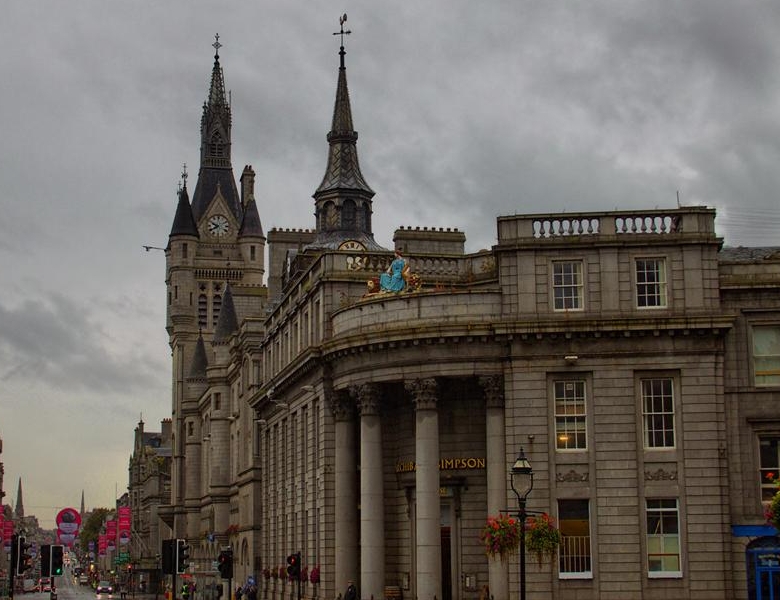 All over the world, people are falling prey to the terrible malaise of depression, and losing their lives to suicidal impulses. Statistically, Scotland is the worst affected part of the UK, with more depressed people and suicide attempts per capita than anywhere else in Britain.
All over the world, people are falling prey to the terrible malaise of depression, and losing their lives to suicidal impulses. Statistically, Scotland is the worst affected part of the UK, with more depressed people and suicide attempts per capita than anywhere else in Britain.
